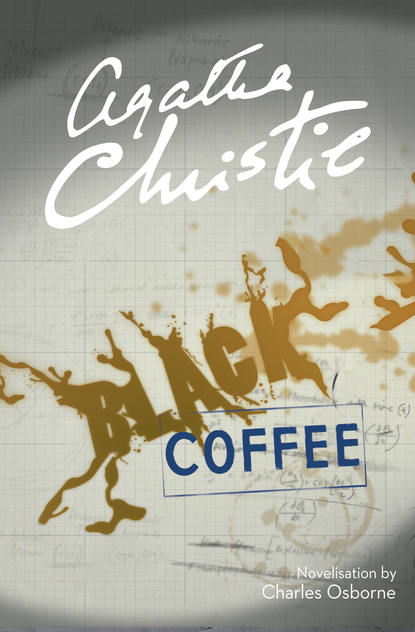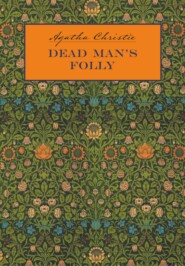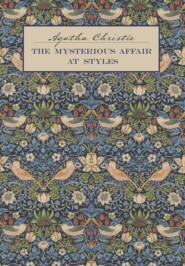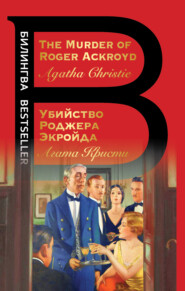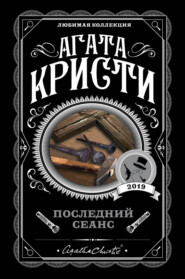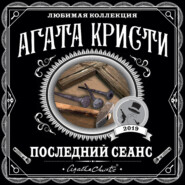По всем вопросам обращайтесь на: info@litportal.ru
(©) 2003-2024.
✖
Black Coffee
Автор
Год написания книги
2019
Настройки чтения
Размер шрифта
Высота строк
Поля
‘Barbara, you know I disapprove of these alcoholic stimulants,’ Miss Amory exclaimed with a shudder. ‘My dear father always said—’
‘I don’t know what he said,’ replied Barbara, ‘but absolutely everyone in the family knows that dear old Great-Uncle Algernon had the reputation of being a three-bottle man.’
At first, Miss Amory looked as if she might explode, but then the slight twitch of a smile appeared on her lips, and all she said was, ‘Gentlemen are different.’
Barbara was having none of this. ‘They’re not in the least different,’ she said. ‘Or at any rate I can’t imagine why they should be allowed to be different. They simply got away with it in those days.’ She produced from her handbag a small mirror, a powder-puff and lipstick. ‘Well, how do we look?’ she asked herself. ‘Oh, my God!’ And she began vigorously to apply lipstick.
‘Really, Barbara,’ said her aunt, ‘I do wish you wouldn’t put quite so much of that red stuff on your lips. It’s such a very bright colour.’
‘I hope so,’ replied Barbara, still completing her make-up. ‘After all, it cost seven and sixpence.’
‘Seven shillings and sixpence! What a disgraceful waste of money, just for—for—’
‘For “Kissproof”, Aunt Caroline.’
‘I beg your pardon?’
‘The lipstick. It’s called “Kissproof”.’
Her aunt sniffed disapprovingly. ‘I know, of course,’ she said, ‘that one’s lips are inclined to chap if one has been out in a high wind, and that a little grease is advisable. Lanoline, for instance. I always use—’
Barbara interrupted her. ‘My dear Aunt Caroline, take it from me, a girl simply can’t have too much lipstick on. After all, she never knows how much of it she’s going to lose in the taxi coming home.’ As she spoke, she replaced the mirror, powder-puff and lipstick in her handbag.
Miss Amory looked puzzled. ‘What do you mean, “in the taxi coming home”?’ she asked. ‘I don’t understand.’
Barbara rose and, moving behind the settee, leaned over to Lucia. ‘Never mind. Lucia understands, don’t you, my love?’ she asked, giving Lucia’s chin a little tickle.
Lucia Amory looked around, blankly. ‘I’m so sorry,’ she said to Barbara, ‘I haven’t been listening. What did you say?’
Focusing her attention on Lucia again, Caroline Amory returned to the subject of that young lady’s health. ‘You know, my dear,’ she said, ‘I really am worried about you.’ She looked from Lucia to Barbara. ‘She ought to have something, Barbara. What have we got now? Sal volatile, of course, that would be the very thing. Unfortunately, that careless Ellen broke my bottle this morning when she was dusting in my room.’
Pursing her lips, Barbara considered for a moment. ‘I know,’ she exclaimed. ‘The hospital stores!’
‘Hospital stores? What do you mean? What hospital stores?’ Miss Amory asked.
Barbara came and sat in a chair close to her aunt. ‘You remember,’ she reminded her. ‘All of Edna’s things.’
Miss Amory’s face brightened. ‘Ah, yes, of course!’ Turning to Lucia, she said, ‘I wish you had met Edna, my elder niece, Barbara’s sister. She went to India with her husband—oh, it must have been about three months before you came here with Richard. Such a capable girl, Edna was.’
‘Most capable,’ Barbara confirmed. ‘She’s just had twins. As there are no gooseberry bushes in India, I think she must have found them under a double mango tree.’
Miss Amory allowed herself a smile. ‘Hush, Barbara,’ she said. Then, turning back to Lucia, she continued, ‘As I was saying, dear, Edna trained as a dispenser during the war. She worked at our hospital here. We turned the Town Hall into a hospital, you know, during the war. And then for some years after the war, until she was married, Edna continued to work in the dispensary at the County Hospital. She was very knowledgable about drugs and pills and that sort of thing. I dare say she still is. That knowledge must be invaluable to her in India. But what was I saying? Oh, yes—when she left. Now what did we do with all those bottles of hers?’
‘I remember perfectly well,’ said Barbara. ‘A lot of old things of Edna’s from the dispensary were bundled into a box. They were supposed to be sorted out and sent to hospitals, but everyone forgot, or at least no one did anything about it. They were put away in the attic, and they only came to light again when Edna was packing to go to India. They’re up there—’ she gestured towards the bookcase—‘and they still haven’t been looked through and sorted out.’
She rose and, taking her chair across to the bookcase, stood on it and, reaching up, lifted the black tin box down from the top.
Ignoring Lucia’s murmured ‘Please don’t bother, darling, I really don’t need anything’, Barbara carried the box over to the table and put it down.
‘Well,’ she said, ‘at least we might as well have a look at the things now that I’ve got them down.’ She opened the box. ‘Oh dear, it’s a motley collection,’ she said, taking out various bottles as she spoke. ‘Iodine, Friar’s balsam, something called “Tinct.Card.Co”, castor oil.’ She grimaced. ‘Ah, now we’re coming to the hot stuff,’ she exclaimed, as she took out of the box some small brown glass tubes. ‘Atropine, morphine, strychnine,’ she read from the labels. ‘Be careful, Aunt Caroline. If you arouse my furious temper, I’ll poison your coffee with strychnine, and you’ll die in the most awful agony.’ Barbara made a mock-menacing gesture at her aunt, who waved her away with a snort.
‘Well, there’s nothing here we could possibly try out on Lucia as a tonic, that’s for certain,’ she laughed, as she began to pack the bottles and phials back into the tin box. She was holding a tube of morphine aloft in her right hand as the door to the hall opened, and Tredwell ushered in Edward Raynor, Dr Carelli, and Sir Claud Amory. Sir Claud’s secretary, Edward Raynor, entered first, an unremarkable-looking young man in his late twenties. He moved across to Barbara, and stood looking at the box. ‘Hello, Mr Raynor. Interested in poisons?’ she asked him as she continued to pack up the bottles.
Dr Carelli, too, approached the table. A very dark, swarthy individual of about forty, Carelli wore perfectly fitting evening clothes. His manner was suave, and when he spoke it was with the slightest Italian accent. ‘What have we here, my dear Miss Amory?’ he queried.
Sir Claud paused at the door to speak to Tredwell. ‘You understand my instructions?’ he asked, and was satisfied by the reply, ‘Perfectly, Sir Claud.’ Tredwell left the room, and Sir Claud moved across to his guest.
‘I hope you will excuse me, Dr Carelli,’ he said, ‘if I go straight to my study? I have several important letters which must go off tonight. Raynor, will you come with me?’ The secretary joined his employer, and they went into Sir Claud’s study by the connecting door. As the door closed behind them, Barbara suddenly dropped the tube she had been holding.
CHAPTER 4 (#ulink_d87f1e2d-c91f-5f50-8682-110c5c2d8060)
Dr Carelli stepped forward quickly, and picked up the tube Barbara had dropped. Glancing at it before handing it back to her with a polite bow, he exclaimed, ‘Hello, what’s this? Morphine!’ He picked up another one from the table. ‘And strychnine! May I ask, my dear young lady, where you got hold of these lethal little tubes?’ He began to examine the contents of the tin box.
Barbara looked at the suave Italian with distaste. ‘The spoils of war,’ she replied shortly, with a tight little smile.
Rising anxiously, Caroline Amory approached Dr Carelli. ‘They’re not really poison, are they, doctor? I mean, they couldn’t harm anyone, could they?’ she asked. ‘That box has been in the house for years. Surely it’s harmless, isn’t it?’
‘I should say,’ replied Carelli dryly, ‘that, with the little lot you have here, you could kill, roughly, twelve strong men. I don’t know what you regard as harmful.’
‘Oh, good gracious,’ Miss Amory gasped with horror as she moved back to her chair, and sat heavily.
‘Here, for instance,’ continued Carelli, addressing the assembled company. He picked up a tube and read slowly from the label. ‘“Strychnine hydrochloride; one sixteenth of a grain.” Seven or eight of these little tablets, and you would die a very unpleasant death indeed. An extremely painful way out of the world.’ He picked up another tube. ‘“Atropine sulphate.” Now, atropine poisoning is sometimes very hard to tell from ptomaine poisoning. It is also a very painful death.’
Replacing the two tubes he had handled, he picked up another. ‘Now here—’ he continued, now speaking very slowly and deliberately, ‘here we have hyoscine hydrobromide, one hundredth of a grain. That doesn’t sound very potent, does it? Yet I assure you, you would only have to swallow half of the little white tablets in this tube, and—’ he made a graphic gesture. ‘There would be no pain—no pain at all. Just a swift and completely dreamless sleep, but a sleep from which there would be no awakening.’ He moved towards Lucia, and held out the tube to her, as though inviting her to examine it. There was a smile on his face, but not in his eyes.
Lucia stared at the tube as though she were fascinated by it. Stretching out a hand, she spoke in a voice that sounded almost as though it were hypnotized. ‘A swift and completely dreamless sleep—’ she murmured, reaching for the tube.
Instead of giving it to her, Dr Carelli glanced at Caroline Amory with an almost questioning look. That lady shuddered and looked distressed, but said nothing. With a shrug of the shoulders, Carelli turned away from Lucia, still holding the tube of hyoscine hydrobromide.
The door to the hallway opened, and Richard Amory entered. Without speaking, he strolled across to the stool by the desk, and sat down. He was followed into the room by Tredwell, who carried a tray containing a jug of coffee with cups and saucers. Placing the tray on the coffee table, Tredwell left the room as Lucia moved to pour out the coffee.
Barbara went across to Lucia, took two cups of coffee from the tray, and then moved over to Richard to give him one of them, keeping the other for herself. Dr Carelli, meanwhile, was busy replacing the tubes in the tin box on the centre table.
‘You know,’ said Miss Amory to Carelli, ‘you make my flesh creep, doctor, with your talk of swift, dreamless sleep and unpleasant deaths. I suppose that, being Italian as you are, you know a lot about poisons?’
‘My dear lady,’ laughed Carelli, ‘is that not an extremely unjust—what do you say—non sequitur? Why should an Italian know any more about poisons than an Englishman? I have heard it said,’ he continued playfully, ‘that poison is a woman’s weapon, rather than a man’s. Perhaps I should ask you—? Ah, but perhaps, dear lady, it is an Italian woman you were thinking of? Perhaps you were about to mention a certain Borgia. Is that it, eh?’ He took a cup of coffee from Lucia at the coffee table, and handed it to Miss Amory, returning to take another cup for himself.
‘Lucrezia Borgia—that dreadful creature! Yes, I suppose that’s what I was thinking of,’ admitted Miss Amory. ‘I used to have nightmares about her when I was a child, you know. I imagined her as very pale, but tall, and with jet-black hair just like our own dear Lucia.’
Dr Carelli approached Miss Amory with the sugar bowl. She shook her head in refusal, and he took the bowl back to the coffee tray. Richard Amory put his coffee down, took a magazine from the desk and began to browse through it, as his aunt developed her Borgia theme. ‘Yes, dreadful nightmares I used to have,’ Miss Amory was saying. ‘I would be the only child in a room full of adults, all of them drinking out of very elaborate goblets. Then this glamorous woman—now I come to think of it, she did look remarkably like you, Lucia dear—would approach me and force a goblet upon me. I could tell by the way she smiled, somehow, that I ought not to drink, but I knew I wasn’t going to be able to refuse. Somehow, she hypnotized me into drinking, and then I would begin to feel a dreadful burning sensation in my throat, and I would find myself fighting for breath. And then, of course, I woke up.’
Dr Carelli had moved close to Lucia. Standing in front of her, he gave an ironic bow. ‘My dear Lucrezia Borgia,’ he implored, ‘have mercy on us all.’
Lucia did not react to Carelli’s joke. She appeared not to have heard him. There was a pause. Smiling to himself, Dr Carelli turned away from Lucia, drank his coffee, and placed his cup on the centre table. Finishing her coffee rapidly, Barbara seemed to realize that a change of mood was called for. ‘What about a little tune?’ she suggested, moving across to the gramophone. ‘Now, what shall we have? There’s a marvellous record here that I bought up in town the other day.’ She began to sing, accompanying her words with a jazzy little dance. ‘“Ikey—oh, crikey—what have you got on?” Or what else is there?’
‘Oh, Barbara dear, not that vulgar song,’ implored Miss Amory, moving across to her, and helping to look through the gramophone records. ‘There are some much nicer records here. If we must have popular music, there are some lovely songs by John McCormack here, somewhere. Or what about “The Holy City”?—I can’t remember the soprano’s name. Or why not that nice Melba record? Oh—ah, yes—here’s Handel’s Largo.’
‘Oh, come on, Aunt Caroline. We’re not likely to be cheered up by Handel’s Largo,’ Barbara protested. ‘There’s some Italian opera here, if we must have classical music. Come on, Dr Carelli, this ought to be your province. Come and help us choose.’





